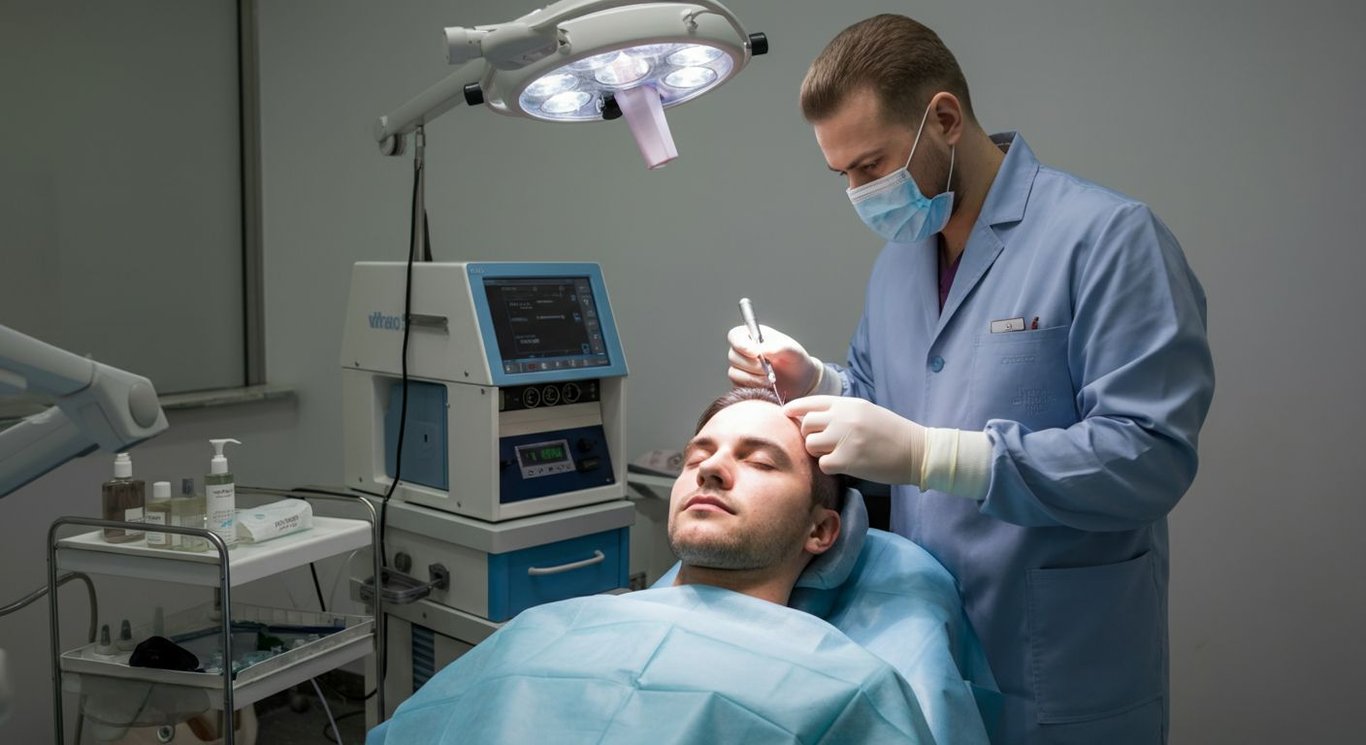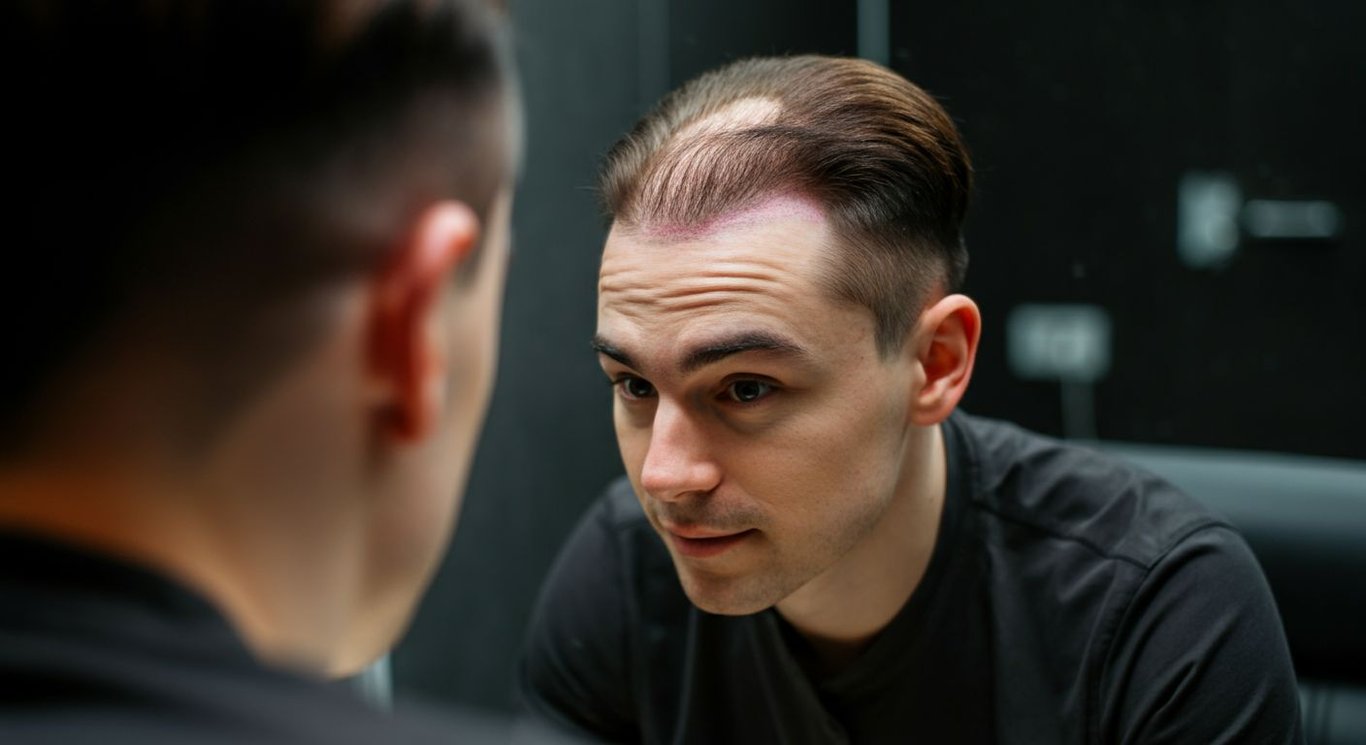Hair Today, Hope Tomorrow: Your Hair Transplant FAQs Answered!
Explore everything you need to know about hair transplants—from techniques to results, including insights on celebrity transformations and recovery tips.
Hair loss is a sensitive topic for many individuals, affecting self-esteem and confidence. Amidst the myriad of treatments available, hair transplant surgeries offer a promising solution for those seeking permanent results. In this comprehensive guide, we'll address frequently asked questions about hair transplants, exploring whether it might be the right choice for you, the techniques involved, and what you can expect from the procedure. With advancements in technology and techniques, hair transplants have become more accessible and effective, promising a new beginning for many.
Decoding Hair Loss: Is a Hair Transplant the Right Choice?
Understanding the Causes of Hair Loss
Hair loss can arise from a multitude of factors, each playing a significant role in determining the overall health and density of your hair. Genetic predispositions, such as androgenetic alopecia, are a primary cause, impacting millions worldwide. Medical conditions, including thyroid imbalances and autoimmune diseases, can also disrupt hair growth cycles. Lifestyle choices, such as diet, stress levels, and hair care practices, further influence hair health.
- Genetics: Influences the likelihood and pattern of hair loss from an early age. For example, men with a family history of male pattern baldness are more likely to experience similar hair loss.
- Medical Conditions: Can directly impact hair follicles, leading to temporary or permanent hair loss. An example is alopecia areata, an autoimmune disorder causing patchy hair loss.
- Lifestyle Factors: Affect the overall health of your hair. A poor diet lacking essential nutrients can weaken hair, making it prone to breakage and loss.
Ideal Candidates for Hair Transplant Procedures
Determining suitability for a hair transplant involves several key considerations. Individuals with localized hair loss, such as a receding hairline or thinning crown, often benefit most from a hair transplant. Good overall health is crucial, as it ensures the body can handle the procedure and recovery effectively. Sufficient donor hair availability, typically from the back and sides of the head, is necessary to provide enough grafts for transplantation. Even celebrities such as Elon Musk and Matthew McConaughey have been rumored to have undergone hair restoration surgery, revitalizing their looks and careers with a fuller head of hair. A well-established hairline or enhanced density can significantly boost one's appearance and confidence. Hair grafting is a safe procedure but not all clinics are equal, therefore it is important to seek council from a trusted clinic such as estehtica, known for its turkish hair implants.
- Localized Hair Loss: Ideal candidates typically have hair loss in specific areas, making transplantation a targeted and effective solution.
- Good Overall Health: Ensures the body can support the healing process and graft survival after the transplant.
- Sufficient Donor Hair: Provides enough hair follicles for successful transplantation to the areas experiencing hair loss.

From Follicle to Fabulous: Understanding Hair Grafting Techniques
Exploring Direct Hair Implantation (DHI)
Direct Hair Implantation (DHI) is an advanced hair transplant technique known for its precision and minimally invasive approach. In DHI, hair follicles are extracted individually and immediately implanted into the recipient area using a specialized pen-like tool. This method ensures that the grafts are handled less, increasing their survival rate. DHI is particularly effective for achieving high-density hair restoration and natural-looking results. Many individuals opt for DHI due to its shorter recovery time and reduced scarring, making it a popular choice for those seeking an effective hair loss treatment.
- Precision Implantation: Allows for precise placement of each hair follicle, ensuring optimal growth direction and density.
- Minimally Invasive: Reduces trauma to the scalp, leading to faster healing and minimal scarring.
- Enhanced Graft Survival: Minimizes handling of grafts, which improves their viability and success rate.
Understanding Follicular Unit Extraction (FUE)
Follicular Unit Extraction (FUE) is another widely used hair transplant technique that involves extracting individual hair follicles directly from the donor area. Unlike older methods, FUE does not require a strip of scalp to be removed, resulting in no linear scar. The extracted follicles are then carefully implanted into the recipient area. FUE is suitable for covering large areas of baldness and can also be used to harvest grafts from other parts of the body, such as the beard. The popularity of FUE stems from its natural-looking results and relatively quick recovery. Many patients appreciate that FUE allows them to wear their hair short without worrying about visible scars.
- Individual Follicle Extraction: Ensures minimal scarring and a more natural appearance.
- Versatile Application: Can be used for various degrees of hair loss and on different areas of the body.
- No Linear Scarring: Allows for greater flexibility in hairstyle choices post-transplant.

The Celebrity Hair Transplant Effect: Separating Fact from Fiction
The Influence of Celebrity Endorsements on Hair Restoration
Celebrity endorsements significantly impact public perception of hair restoration. When well-known figures like Elon Musk or Matthew McConaughey undergo hair transplants, it brings attention to the procedure, making it seem more acceptable and attainable. These endorsements can dispel myths and reduce the stigma associated with hair loss treatment. However, it’s crucial to approach celebrity-driven trends with informed expectations, understanding that individual results can vary. The visibility of figures like Elon Musk getting elon musk hair replacement has sparked interest in turkish hair implants. Many people now seek similar transformations, influencing the demand and innovation in hair grafting techniques.
- Increased Awareness: Celebrity transformations normalize the idea of seeking hair restoration, making it a more common topic.
- Combating Stigma: Open discussions about procedures by public figures help reduce the shame or embarrassment associated with hair loss and its treatments.
- Driving Innovation: Heightened demand encourages advancements in techniques and technologies, leading to more effective and less invasive options.
Separating Reality from Hype in Celebrity Transplants
While celebrity hair transplants can inspire confidence, it's important to have realistic expectations. Factors such as individual hair type, the extent of hair loss, and overall health play crucial roles in the success of the procedure. For example, if you are looking for the best hair transplant clinic near me you can visit us. Celebrities often have access to top surgeons and advanced treatments, which may not be universally accessible. Before pursuing a hair transplant, consult with a qualified specialist to understand what's achievable for your specific situation. Estehtica offers trusted hair replacement surgery, providing personalized assessments and expert care, ensuring informed decisions about your elon musk hair replacement journey. Celebrities like Matthew McConaughey have brought the discussion of hair grafting to the forefront, influencing many to explore hair loss solutions.
- Individual Variability: Results depend on personal factors like hair type, the extent of hair loss, and health condition.
- Realistic Expectations: Understand that celebrity outcomes are achieved with specialized care and aren't guaranteed for everyone.
- Professional Consultation: Seek advice from qualified specialists to determine the best approach tailored to your unique needs.

Hair Restoration: What to Expect After Your Hair Transplant Procedure
Navigating the Hair Transplant Recovery Timeline
Post-operative care is crucial for ensuring the success of your hair transplant and achieving optimal results. The immediate aftermath of the procedure involves managing initial swelling and discomfort. Within the first week, small scabs will form around the transplanted follicles, which is a normal part of the healing process. By the second week, these scabs will begin to fall off, and the transplanted hair may shed—a temporary phase before new growth begins. Around three to four months post-transplant, new hair will start to emerge, gradually increasing in density over the following months. Final results are typically visible within 12 to 18 months. estethica's innovative technologies, including specialized serums and creams, support this healing process, promoting faster recovery and enhanced graft survival. While individual experiences vary, following your surgeon's aftercare instructions closely is essential for a smooth recovery when you are looking for affordable hair transplant. It's also important to know how long does hair transplant last.
- Immediate Post-Op: Focus on managing swelling and discomfort with prescribed medications and cold compresses.
- First Week: Expect scab formation around the transplanted follicles as part of the natural healing process.
- 3-4 Months: New hair growth begins, with density gradually increasing over the following months.
Maximizing Success After Your Hair Transplant
To maximize the success of your hair transplant, adhering to specific aftercare tips is essential. Gently cleanse your scalp with a mild, pH-balanced shampoo as directed by your surgeon to prevent infection and promote healing. Avoid strenuous activities and direct sun exposure for several weeks to protect the newly transplanted grafts. Maintain a healthy diet rich in vitamins and minerals to support hair restoration. Avoid smoking and excessive alcohol consumption, as these can impair blood flow and hinder the healing process. Attend all follow-up appointments with your surgeon to monitor your progress and address any concerns promptly. Studies show that patients who diligently follow post-op instructions experience a 20% higher graft survival rate. During hair transplant aftercare winter, you should pay more attention to your hair. estethica's comprehensive approach includes personalized aftercare plans and advanced products designed to enhance the outcome of your hair grafting.
- Gentle Scalp Cleansing: Reduces the risk of infection and promotes a healthy environment for new hair growth.
- Avoid Strenuous Activities: Protects the delicate grafts from physical trauma during the initial healing phase.
- Healthy Diet and Lifestyle: Supports optimal blood flow and nutrient delivery to the hair follicles.
DHI Plus Gold Technique: Achieving Natural-Looking Hair Transplants with Minimally Invasive Procedures
Comprehensive Hair Restoration: Maximizing Success Through Personalized Aftercare and Advanced Products
Frequently Asked Questions
What factors determine if I am a good candidate for a hair transplant?
What are the main differences between DHI and FUE hair transplant techniques?
How do celebrity hair transplants influence public perception, and what should one realistically expect?
What is the hair transplant recovery timeline, and what are the key steps for ensuring success?
How can advanced techniques like DHI Plus Gold contribute to natural-looking hair restoration?
Achieve your aesthetic goals with estethica's expert guidance.
📞 Call Now for Expert Advice!